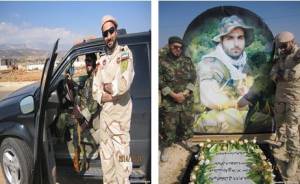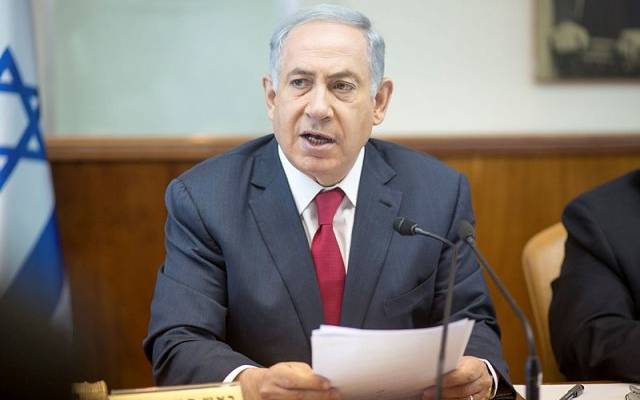While welcoming efforts to achieve peace in Syria, Israel demands that its security is ensured as well, and Iran and Hezbollah cells operating out of the Syrian Golan must be defeated.
Prime Minister Benjamin Netanyahu said Sunday that any peaceful resolution in Syria must guarantee Israel’s security needs, ensuring that Iran does not establish a terror front against Israel from the Syrian Golan Heights.
Speaking at the beginning of the weekly cabinet meeting, Netanyahu said the Israel welcomes international efforts to achieve “a stable, long-term and genuine ceasefire in Syria.”
“Anything that stops the terrible killing there is important especially from a humanitarian standpoint,” the Israeli premier said, stressing however that “it must be clear at the same time that any agreement in Syria must include a halt to Iran’s aggression toward Israel from Syrian territory.”
“We will not agree to the supply of advanced weaponry to Hezbollah from Syria and Lebanon. We will not agree to the creation of a second terror front on the Golan Heights. These are the red lines that we have set and they remain the red lines of the State of Israel,” Netanyahu warned.
Israel has warned in the past it will not tolerate a hostile Iranian presence that would threaten its northern border.
Israel has reportedly thwarted several joint Hezbollah-Iran attempts to establish terror infrastructure in the area adjacent to Israel, which is currently the site of many of the Syrian civil war‘s battles.
Of note, notorious terrorist Samir Kuntar was killed in a reported Israeli Air Force (IAF) air strike in a suburb of Damascus in Syria in December.
He was in the process of establishing a terror front against Israel in the Golan. According to reports in the Arab media, eight other terrorists were killed in the attack, including Farhan Shaalan, another senior terrorist who planned terror attacks against Israel in the Golan Heights.
In January 2015, the IAF reportedly targeted a cell of senior Hezbollah operatives, including Jihad Mughniyeh, commander of Hezbollah operations in the Golan Heights.

Iranian soldiers photoed in Lebanon. (MEMRI)
Also killed was Colonel Ali Reza al-Tabatabai, the Iranian commander of the Radwan force of the Revolutionary Guards in Lebanon. At least six Hezbollah operatives were killed in the attack.
The unit was also working to establish a terror network form which they intended to launch attacks on Israel.
In the meantime, a temporary ceasefire in Syria came into effect at midnight, with the UN special envoy Stefan De Mistura saying that shortly after the US-Russia brokered truce began, there were some reports of exchanges of fire in Damascus and Daraa, before guns fell silent.
According to the diplomat, if the sides halt their fire and allow an increase in the transfer of humanitarian aid to residents, representatives of Syria’s regime and rebels will convene in a week and a half’s time to renew peace talks.
The UN Security Council on Friday unanimously approved the truce calling on all sides to heed the two-week ceasefire. The truce includes the Assad regime and several opposition factions; but the jihadist elements in Syria — Islamic State (ISIS), Jabhat a-Nusra and other groups, are not party to the deal.










